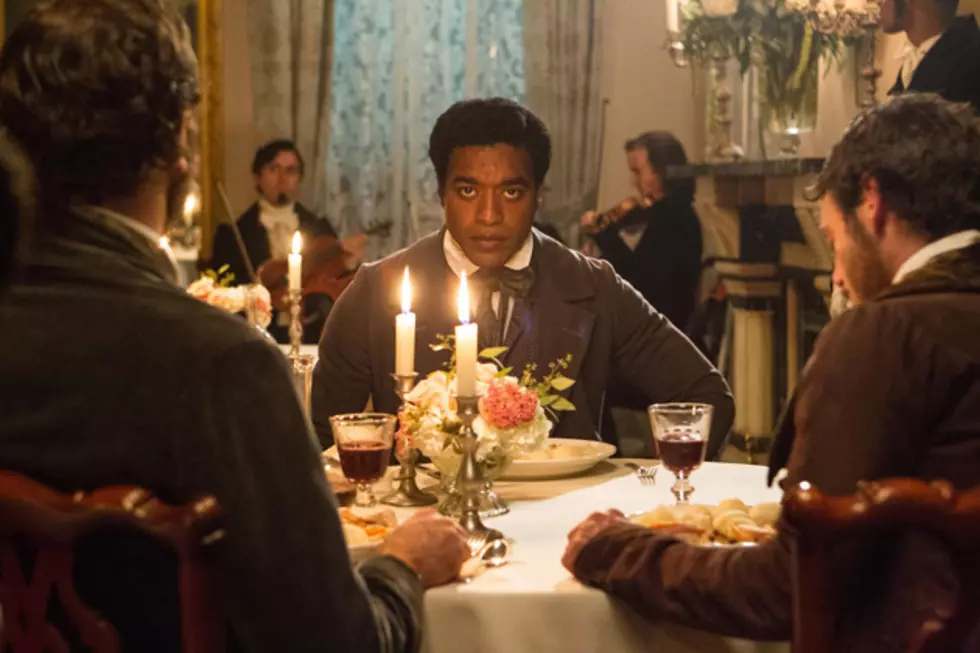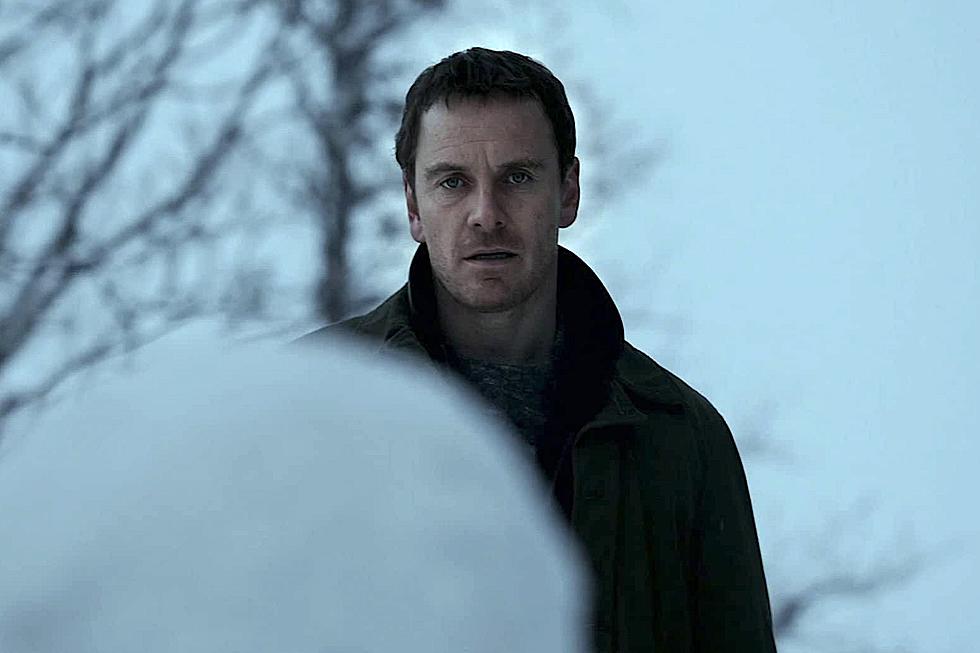
’12 Years a Slave’ Review
It would be a lot easier if you could say, "it's just a movie." The sickening thing, the thing that may make it difficult to convince you to buy a ticket, is the opening card that reads, "based on a true story." But facing the cruelty of America's original sin is what '12 Years a Slave' is all about. That's what Solomon Northup did.
When we first meet Northup (Chiwetel Ejiofor) he is a free-born and educated African-American living a good family life in Saratoga, New York. A musician (but also, we'll learn, an experienced engineer), he is lured by two men for a quick two-week road gig. They head down to Washington, D.C., and after a fancy dinner (at which he is drugged) he awakens in chains. He won't break out of them for 12 years.
He is told he's a runaway from Georgia and has no papers to prove otherwise. He is beaten then sent farther south to a slave auction. On the boat he meets others who are all equally panicked about what horrors await, and quickly learns it is unsafe to protest about his true identity.
The next step on his journey is the dehumanizing process of his sale. A slave trader (Paul Giamatti) brings his clients into a genteel setting -- not an outdoor auction. As music is played and drinks are served, the naked men and women are discussed as objects -- their muscles poked, their teeth inspected, told to jump. Northup (now renamed Platt) is bought by a plantation owner (Benedict Cumberbatch). He also buys Eliza (Adepero Oduye), though not her children.
Eliza's no dummy. She can see the transaction happening before her eyes. She begs and pleads not to split up her family (her daughter, sired by her former master, is too pricey for Cumberbatch), but it's as if her cries are a gnat buzzing around the room. Eliza is not a human being, she is property, and the trauma of ripping her babies away from her is not a consideration. Director Steve McQueen films this in one long take and it ranks as one of the most upsetting things I've ever sat through at a movie -- and the ghost of this cruel horror lingers throughout the rest of the film.
Part of what makes '12 Years a Slave' so striking is that it refuses to ever take the easy road. Turns out Benedict Cumberbatch has a conscience. He treats his slaves (comparatively) well and recognizes something special about Northup. This favoritism ultimately dooms Northup, as it ticks off the mean-spirited overseer (Paul Dano).
Dano instigates an altercation -- leading to a rather elegantly framed, but awful torture sequence -- and soon Cumberbatch has to trade Northup for the slave's own protection.
That's when the sadistic Michael Fassbender enters the picture. A hen-pecked husband with a drinking problem and a misunderstanding of the Scripture (many of these evil men love to hide behind twisted interpretations of the Bible), Fassbender is known as a "slave breaker," and when Northup enters his plantation it is a descent into hell.
In addition to exposing the day-in-day-out work and life functions, John Ridley's screenplay casts a light on all sorts of seldom discussed aspects of this part of history. There's the very psychological toll that being an overseer takes on a man (represented by Garret Dillahunt, who should be in all movies), and then there's the female slaves who catch the eye of their masters.
Alfre Woodard plays the wife (or "mistress," her title is vague) of a nearby plantation owner. To see a black woman sipping tea with her own servants offers some cognitive dissonance in the middle of this film. Under her wing is Patsey (Lupita Nyong'o), whom, if she played her cards right, could end up in luxury with Fassbender.
But Patsey doesn't want that. She is a proud, strong individual. This is part of her appeal to Fassbender, who calls her the "Queen of the Fields." Fassbender's destructive and confused affection for Patsey causes problems for everyone. You'll never feel sorry for him -- he is a monster -- but you'll see how the institution of slavery poisoned the lives of everyone involved.
'12 Years a Slave' is an emotional workout, but McQueen makes many remarkable choices. There isn't a lot of moaning or wailing or shrill music cues. The score, by Hans Zimmer, is reminiscent of his own 'Inception,' a build-up of haunting themes. Northup is a musician, but it takes him a great deal of time before he joins in the singing of Negro spirituals or work songs. When he finally does it, it's as if he's finally accepting he'll never be freed.
He was freed, of course, or else we'd never know his story, but how the outcome came about is pretty miraculous. Indeed, that's the final indignity. How many stories were just shoved aside as worthless as America built itself to become the world's great economic power? This essential film, with its outstanding performances, artful photography and eloquent dialogue, exists only because of dumb luck. Northup published the story of his ordeal in 1853. It's not unreasonable that you honor him with a few hours of your time by seeing this film.
'12 Years a Slave' hits theaters on October 18.
Jordan Hoffman is a writer, critic and lapsed filmmaker living in New York City. His work can also be seen on Film.com, Badass Digest and StarTrek.com.
More From ScreenCrush









